Here's The Socialist Who Fought ISIS And Organized A Craft Beer Union
Employees of Anchor Brewing Company voted in mid-March to organize with the International Longshore and Warehouse Union (ILWU), creating one of the first craft brewery unions in the country. One of the main figures behind the year-long unionization effort is 29-year-old Brace Belden, which wouldn’t surprise those who know a bit about the native San Franciscan’s past.
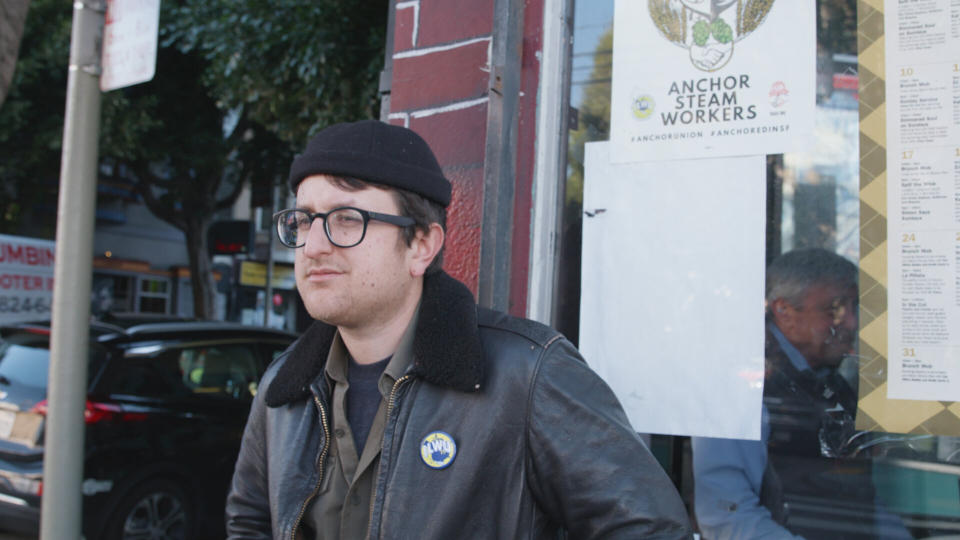
Belden first attracted notoriety as a teenager playing in a handful of provocative bands in the Bay Area punk rock scene. Later, he volunteered in Syria with the YPG ―part of the Kurdish leftist Democratic Union Party ― fighting for the liberation of the Kurds and documented his wartime exploits on a viral Twitter account.
For the last year, he’s been at the forefront of the Anchor organization effort. Yet his seemingly disparate adventures can all be tied together with one word – “solidarity.”
“Solidarity is like, the weapon of the world’s workers,” Belden said. “Solidarity was the reason I decided I’m going to go to Syria, and solidarity was the reason I started getting more involved in this thing at work.”
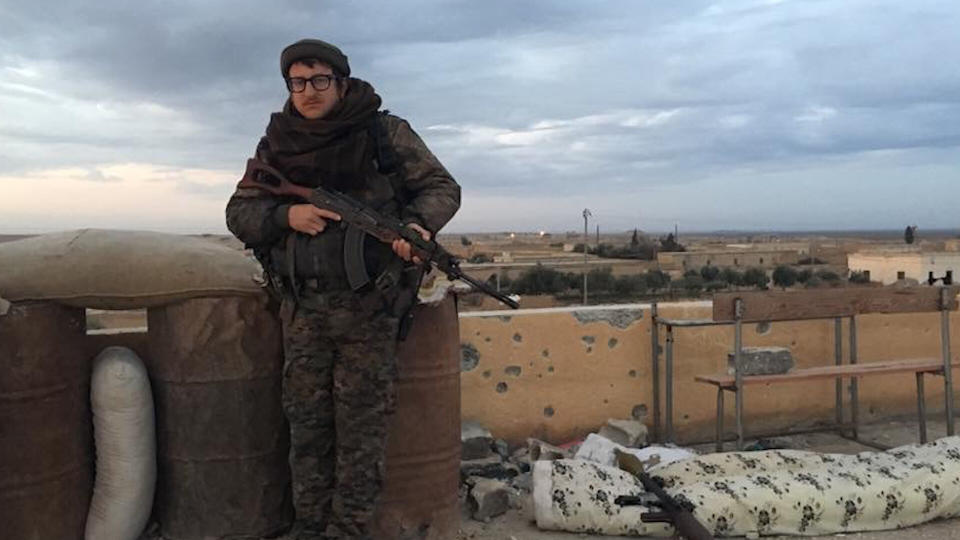
His father was a journalist who first exposed Belden to local left-wing politics in his childhood. In middle school, Belden remembers borrowing books on socialist history from the school library.
His further induction into leftist politics came through punk rock. But the local punk scene was also his entry point into a hard-partying lifestyle of drinking and drugs. Fed up with his behavior, Belden’s father sent him to a reform school at the age of 13. The Monarch School in Montana adopted therapy techniques inspired by the Californian cult Synanon.
“We had to do stuff like build the founder’s house there. Like 13-year-olds hammering stuff and putting pipes in,” Belden said. “They made us pretend to be babies, which was great. They would do these things called insights where they’d lock you in a mirrored room and play that Talking Heads song, ‘Watching the Days Go By’ over and over at top volume and you’d have to get on all fours and cry like a baby while people would push you back into the womb or something. They do this for three days. You get one meal a day. It kind of drove you crazy but it made me able to sort of subsume myself. It taught me a lot of things that it wasn’t supposed to teach me.”
After a year at Monarch, Belden was allowed his first home visit and used it to run away from his father’s house, leading to a period of homelessness and opioid use. And once he began using heroin, the drug consumed every part of his life.
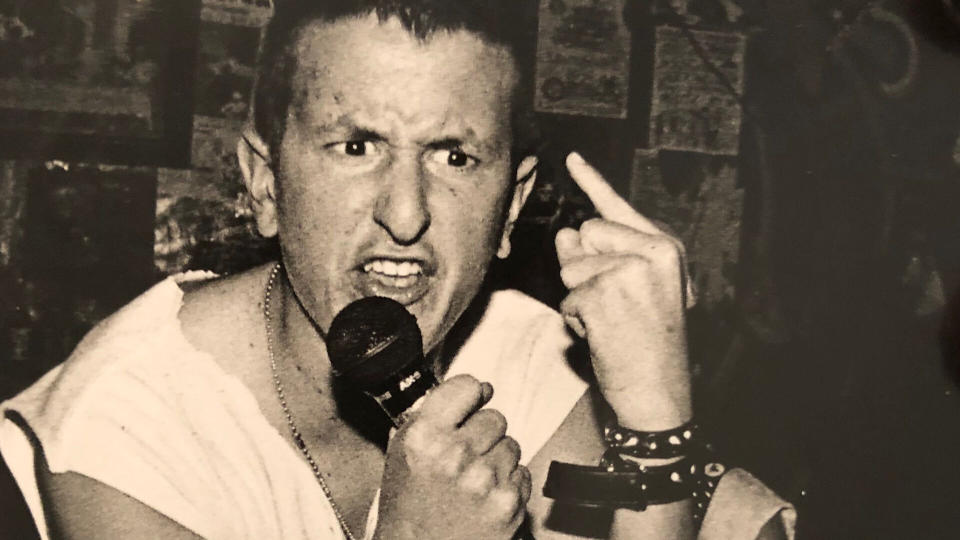
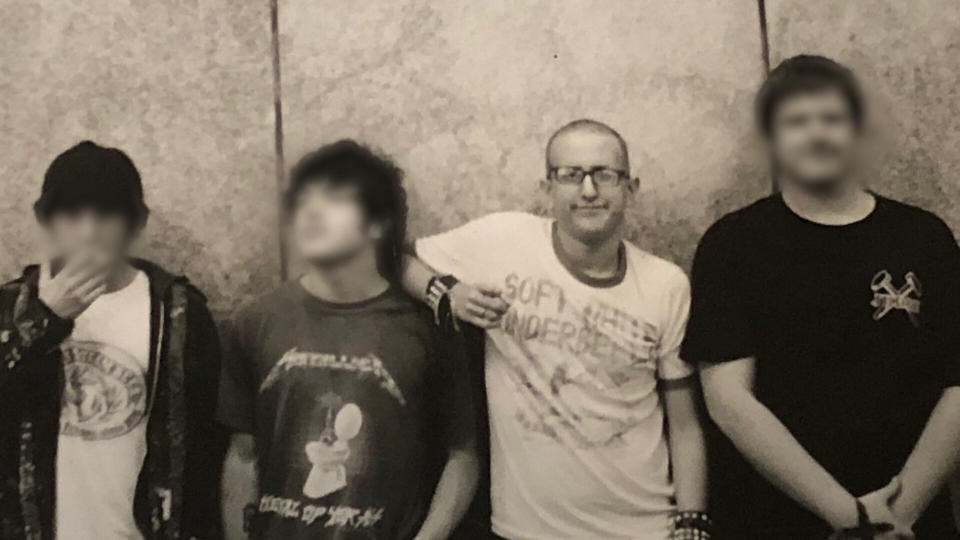
“I thought of nothing else all day, every day, except I did have a thin line of self-loathing that ran through everything that I did,” he said.
Over the next few years, his drug problem worsened. When he was 22, San Francisco police caught Belden buying a few dollars worth of methamphetamines. He was able to get the charges he faced downgraded if he agreed to go to rehab. He had continued to devour books on Marxism and communist theory throughout his drug phase, and it was during his time in halfway houses that he started calling himself a communist and figuring out what that label meant to him. After getting sober, Belden became involved in local socialist groups, but wanted a larger purpose.
“There wasn’t a single moment when I decided, ‘I’m gonna go to Syria.’ My brain is extremely small and incredibly broken, so it was like I just got obsessed with it.”
He was particularly moved by the death of Ivana Hoffman, 19, a German-Togolese woman who died fighting for the Marxist Leninist Communist Party of Turkey against ISIS in Syria.
“It just really touched me and I was amazed by it,” Belden recalled. “And I decided to go out there. I originally wanted to go as a civilian. I realized that was harder than I thought, and the only way I could get there was by joining the YPG.”
Belden was interested in the Kurdish people’s goal of establishing a socialist society based around democratic and federalist lines.
“America is not the sort of place” where one is inspired to take political action, he said, “and I really wanted to see what it looked like when a whole people rises up. And they were fighting ISIS, too, who are generally not known to be great guys.”
Love HuffPost? Become a founding member of HuffPost Plus today.
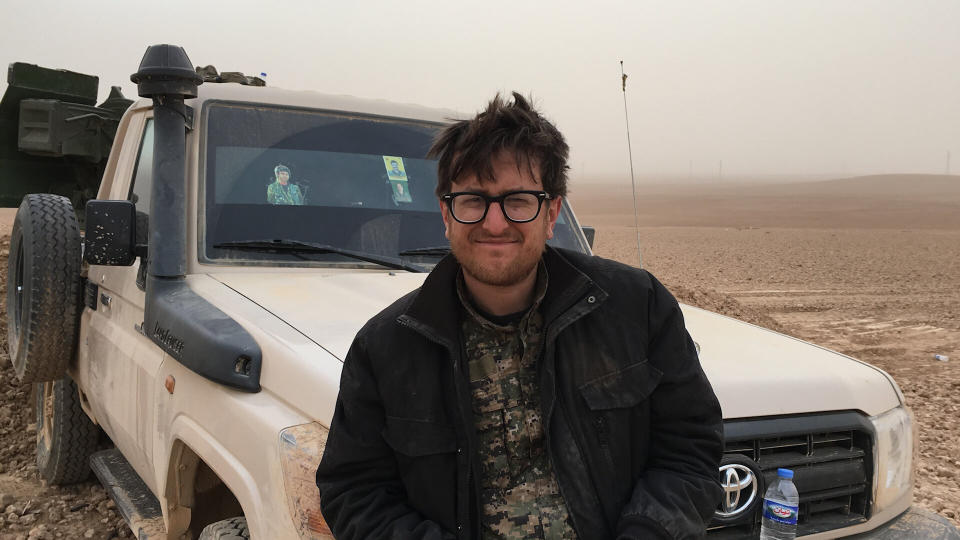
In 2017, after serving out his full six-month duty with the YPG, he returned to San Francisco. His time in Syria provided little chance of relapsing into drug use, but back home it was again a daily challenge. This, along with his sudden removal from the intense environment of his experiences in Syria, caused Belden to battle depression.
Over the next few months, he slowly returned to a familiar routine, rebuilding his life. He went back to volunteering at a day care center for Alzheimer’s patients, something he had done since getting sober. He started getting more involved in political action through his girlfriend Jen Snyder, a local activist and organizer who helped found the San Francisco chapter of the Democratic Socialists of America.
Eventually, he found a job as a bottler at Anchor Brewing Company, the makers of Anchor Steam beer. After he started working there last year, some of his coworkers took him aside and told them they had been considering starting a union.
“That’s when things got a little more interesting at work,” Belden said.
Neither he nor his coworkers had much organizing experience. But they hit the ground running, learning as they went along.
“The first thing you want to do if you want to start a union, is you gotta look at yourself and think of the reasons you want it,” Belden said. For him, the major issues were low wages and for employees to have more of a say in the company’s affairs.
“We’re owned by Sapporo, which is a $10 billion dollar food, beverage and real estate company that owns several other breweries, a couple of them being in Canada, which are union shops,” he said. “We just want basically equal footing as the workers in those other places.”
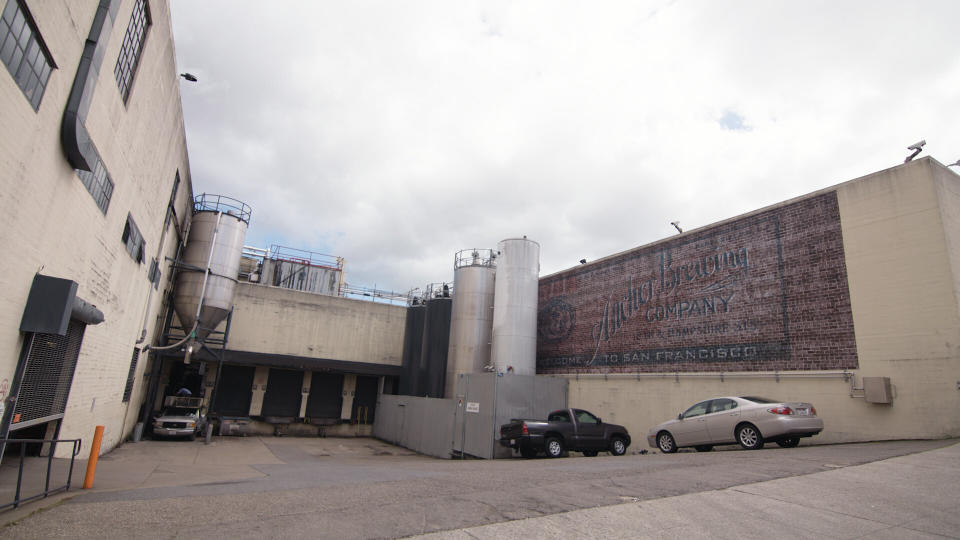
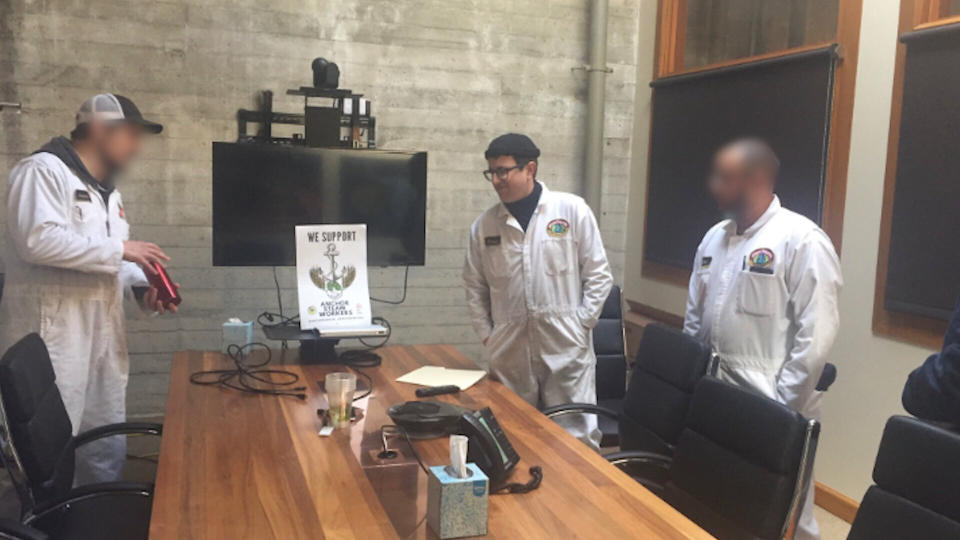
It took over a year of organizing before a union vote could take place. During that time, Belden and other committee members built a strong base of support among their coworkers and launched a street campaign, putting up posters across San Francisco. Finally, on March 13, employees voted 31-16 to organize with the ILWU. Belden said he’s proud of the success and hopes that it can be emulated across the country.
“We hope to be the first of 10,000 craft brewing unions in America. It’s an industry where sales have skyrocketed and wages have dropped during that same period, and we just don’t think that’s fair, because there wouldn’t be no craft beer without craft beer brewers and bottlers, and canners.”
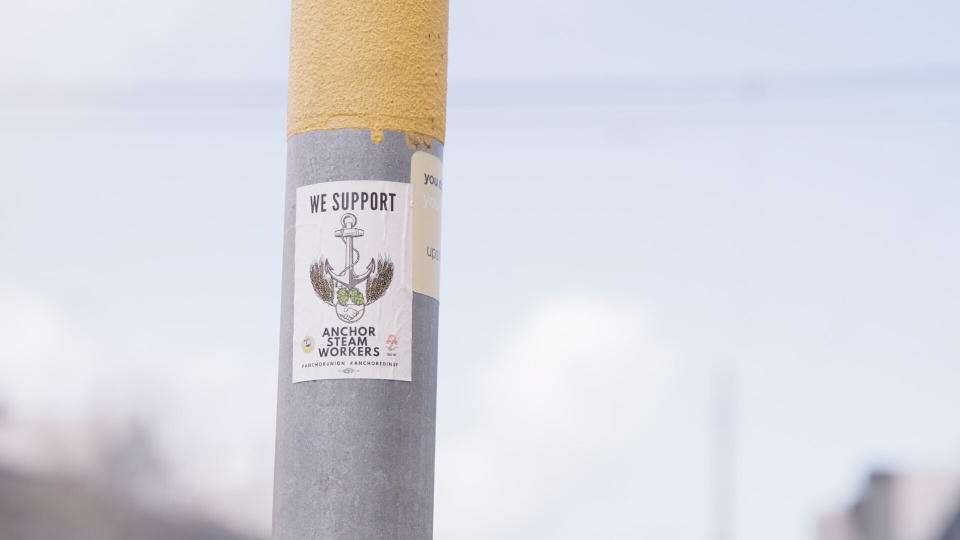
When he was younger, Belden said communism “was just another way to be bad.” Later, he began thinking more seriously about class consciousness, and today he is a firm believer in the Marxist notion of a global class war.
“If you’re a working person, whether you know it or not, you are a participant in the class struggle,” he said. “And whether you’re helping the other side or whether you’re sort of asleep to your own interests, that depends on the person. But I think it’s the duty for everybody who works for a living, that sells their labor power, to stand up for themselves and to stand up for the other people in their situation.”
This article originally appeared on HuffPost.

